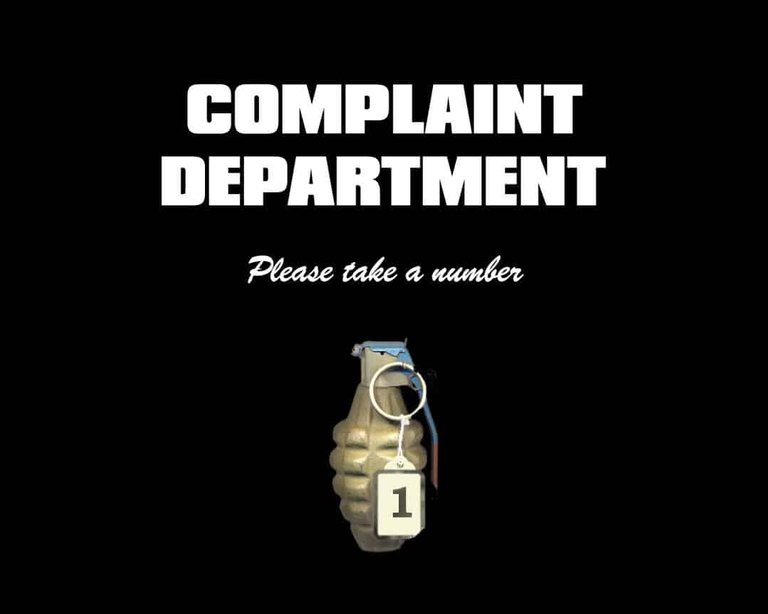Coinbase is reputed to be the world’s largest Bitcoin broker, currently serving a total of 32 countries (although this may soon drop to 31 as Vogogo, their Canadian payment service, shuts down).In addition to direct sales of Bitcoin at, or close to, the current average market rate (plus 1% fee), Coinbase facilitates low fee (0.25% for takers) trading of both Bitcoin and Ethereum on its exchange platform, GDAX (the Global Digital Asset Exchange).Coinbase offers the following additional services and benefits:
- Instant purchase of up to $1000 worth of BTC per week for verified credit card holders.
- A wide variety of fiat deposit and withdrawal options.
- Instant transfers between Coinbase users.
- A well-documented API for developers.
- Well-designed and intuitive user experience.
- Insured Bitcoin deposits.
- A debit card from Shift Payments linked to your Coinbase balance.
- Online and mobile wallet services, with multi-signature security option to prevent unauthorised movement of funds.
Coinbase is often recommended to newcomers as one of the easiest ways to acquire their first bitcoins. The company has invested a lot of time and money into making their user experience smooth and painless. Their extensive banking partnerships allow transactions to be made via EFT payment, ACH / SWIFT / SEPA transfer and, as a recent introduction, major credit cards and PayPal.For these and similar reasons, Coinbase has experienced rapid growth since its founding in mid-2012 by Brian Armstrong and Fred Ehrsam. The following stats from Coinbase’s landing page speak for themselves:

If Coinbase is so successful, why does it have such a bad rep?
It’s no secret that Coinbase attracts a lot of animosity, if not outright hostility. A “Coinbase” search query on Reddit’s r/bitcoin soon reveals endless user complaints, interspersed with relevant news. In response to either such post, no shortage of anti-Coinbase vitriol will be detected from the commentariat. The situation is similar on the BitcoinTalk forum and other discussion venues; mention Coinbase to Bitcoiners in person or on IRC, Twitter or Slack and you’re about equally likely to hear criticism as praise.Now, a lot of people love Bitcoin for offering sanctuary from the grand and petty tyrannies of the banks and corporate payment services. Any company which re-introduces such “user experiences” will inevitably encounter heavy flak. In short, Coinbase is punished for often behaving like the most sinister of banks.Such views must be tempered by the fact that, for years, Coinbase has served the market more reliably and faithfully than many (ex-)exchanges, failed or as-yet-unfailed, which could be mentioned. However, Coinbase has also pulled its share of questionable moves over its lifetime.Here are a number of good reasons to regard the company with some scepticism:
The 6 Major Reasons for the Coinbase Controversy
1) Closed and Frozen Accounts
The dreaded Coinbase “freeze notice.”Forcible account closures are probably the most commonly held grudge against Coinbase. Due to the company’s tight integration with traditional banking laws, such closures are inevitable. For better and / or worse, Coinbase prides itself on its legislative compliance.Coinbase was first to receive US regulatory approval. As a result, Coinbase has AML (Anti-Money Laundering) and KYC (Know Your Customer) practices much like any bank. You’ll have to provide a lot of personally-identifying information if you wish to avail yourself of Coinbase’s service.Many Bitcoiners value privacy and object to such invasive measures. To quote a recent tweet by Andreas Antonopolous: “The biggest money launderers have banking licenses. The biggest terror financiers are states. Don’t buy the lie of KYC/AML.”Expect Coinbase to track how you spend “their” coins and to summarily shut your account for the following activities:
- Transactions related to adult services,
- Bitcoin gambling, including skill-based gaming,
- Sale or purchase of contraband through darknet markets,
- Resale of coins on other exchanges, particularly those without AML / KYC,
- Other arbitrary reasons which rub their algorithm the wrong way.
While your money will almost certainly be returned to your bank if Coinbase shuts your account, it will likely prove to be an inconvenient, frustrating and potentially costly experience.Coinbase is also a member of the Blockchain Alliance, which aims to combat the use of Bitcoin for illegal (or unlicensed) purposes. As such blacklisting measures degrades Bitcoin’s fungibility – an important property of sound money – Coinbase’s policies are a matter of legitimate grievance to Bitcoin holders.Note: if you enjoy the convenience of buying bitcoins from Coinbase but want to avoid blacklisting, check out ourguide to anonymizing your Bitcoin spending!
2) Volume of Complaints
If Coinbase gets anything like their claimed number of 4 million customers, it stands to reason that they’ll receive a proportionally high number of complaints. As a recent example, many users expressed their dissatisfaction with GDAX bugs and outages. Such complaints tend to spill over into social media due to the perception that Coinbase’s support staff will expedite their responses to publically-voiced grievances.

The unanswered questions are whether Coinbase receives proportionally more support tickets than its competitors, how many tickets are resolved to their customers’ satisfaction and how long it takes for the average ticket to be closed. From personal experience Coinbase’s support answered 99Bitcoins’ claims once every 48 hours on average. To its credit, in addition to its email support service, Coinbase also provides a comprehensive FAQ section page and a helpful support forum.
3) Close Ties to the Banking Establishment
It’s no secret that Coinbase received millions in venture capital funding, totalling $106 million, received over 4 funding rounds from 23 different investors. Their seed round was in late 2012 and in early 2015 it had a Series C round. The identity of Coinbase’s investors, BBVA in particular, goes a long way towards explaining their close ties to traditional financial firms. Fred Ehrsam himself is a former Goldman Sachs trader. Naturally, such relationships do not sit well with certain, shall we say, “zealous” Bitcoiners, who consider banks the disease and Bitcoin the cure.
4) Affiliate Rewards abuse
Coinbase formerly offered a generous affiliate program, whereby $75 was paid to anyone who referred a customer who went on to purchase $100+ worth of Bitcoin. However, Coinbase reneged on this deal without warning. Many hard-working affiliates, including 99Bitcoins, received a pittance for promotional work conducted for Coinbase.
5) Ill-Fated Political Interventions
For whatever motive, both Brian Armstrong and Fred Ehrsam (Coinbase’s founders) felt compelled to wade into treacherous PR waters, to the detriment of their firm’s reputation. Their first major mistake was involving Coinbase in the acrimonious block size debate and their second was actively promoting Bitcoin’s main rival; the troubled, “Turing-complete” Ethereum.Coinbase unwisely pledged its support to the failed Bitcoin XT / Classic project. Brian Armstrong raised hackles across social media with a number of ill-advised comments and announcements.

Armstrong’s top-down approach was not well-received by the wider Bitcoin community.Next, Fred Ehrsam proclaimed the superiority of Ethereum, shortly before the spectacular failure of the DAO and Ethereum’s subsequent price crash.It’s hard to imagine what Brian and Fred hoped to gain from their controversial statements and decisions but the resultant PR backlash will likely see them charting a more neutral course in future.
6) Blockchain Patents
Perhaps most egregious of all their transgressions are Coinbase’s 9 patent filings for cryptocurrency-related “innovations.” These applications include the following:
- “Bitcoin exchange,”
- “hot wallet for holding Bitcoin,”
- “tips button,” etc.
Such patents are obviously not Coinbase innovations and obviously clash with the open source nature and the philosophy of Bitcoin. Brian Armstrong apparently expects people to trust Coinbase, and to refrain from using any such patents to block competition. Frankly, no company, agency or entity can or should be trusted with legal authority over any aspect of the Bitcoin ecosystem. Bitcoin was designed to obviate the need for such trusted parties.
Bottom Line: Should You Use Coinbase?
At times, it appears that Coinbase is more in the business of attracting investors than servicing clients or wisely developing Bitcoin. Given the foregoing, it’s impossible to recommend Coinbase without some caveats:You should never rely on Coinbase to act as your wallet. This applies equally to every other exchange and third-party service offering to store your coins. The oft-repeated maxim is: if you don’t hold the private keys, you don’t own the bitcoins.While Coinbase’s multi-sig Vault offers some extra security, as get to retain at least one of the keys, it’s still nowhere near as secure as storing your bitcoins personally. If you’re uncertain as to how to properly store your bitcoins in a cold wallet, consider the purchase of a suitable hardware wallet.Don’t use Coinbase if you intend to use your bitcoins for anything “naughty.” To avoid future legal entanglements, your best option a decentralised exchange, such as LocalBitcoins or Mycelium Local Trader.Finally, if you’re a Bitcoin holder or believer, before using Coinbase you should consider whether their actions, affiliations and incentives are properly aligned with the cure principles of Bitcoin, such as openness, decentralisation and fungibility. While Coinbase may be a cheap, popular and convenient option, they’ve demonstrated a disturbing lack of regard for those unique properties which ultimately give Bitcoin its value.
Coinbase is not for Bitcoiners
It’s an admitted simplification to say that Coinbase isn’t for Bitcoiners but instead for cryptocurrency newcomers, Ethereum enthusiasts, venture capitalists and those with an abiding sentimental attachment to the reassuringly blue corporate colour schemes and wealth-peacocking of traditional banks.A lot of people feel more comfortable entrusting their money to a service which makes Bitcoin appear more conventional and familiar. This is justifiable given that the surplus of investment in Coinbase (supplemented at the time of writing by a $10.5 million injection from the Bank of Tokyo Mitsubishi UFJ) implies that the company is well-capitalized; a rich exchange tends to be a sound exchange. If you’re wary of leaving substantial sums of fiat or crypto on an exchange, Coinbase is probably one of the more secure options, although a thorough audit is the only way to prove that for a fact.

This is a copy/paste from 99Bitcoins blog.. lol
https://99bitcoins.com/coinbase-review-6-controversial-issues
Congratulations @csrolex! You have received a personal award!
Click on the badge to view your own Board of Honor on SteemitBoard.
For more information about this award, click here
Super post
Congratulations @csrolex! You received a personal award!
You can view your badges on your Steem Board and compare to others on the Steem Ranking
Vote for @Steemitboard as a witness to get one more award and increased upvotes!